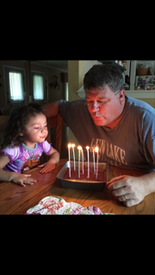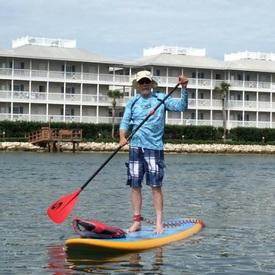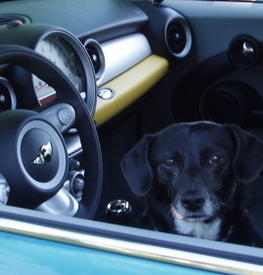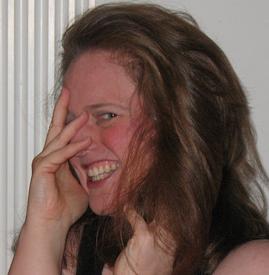LTL Thursday, June 1
Options

MurpleCat
Posts: 229 Member
Everyone says it, but just how do you do it? How do you take the guidelines of the WW program and turn them into a lifestyle you can live every day...from now on? That is what we are here to explore. Each weekday, a new topic is offered up for discussion. Newbie? Join in! Veteran? Join in! Your thoughts may be just what someone else needs to hear.
Monday -- whathapnd (Emmie)
Tuesday -- RedSassyPants
Wednesday -- minimyzeme (Kim)
Thursday -- Wild Card Day--open to anyone who grabs it!
Friday -- Tripaway
Today's topic: Playing to your Strengths
Do you know your own learning style? In other words, do you learn best by reading, hearing, or doing?* Do you exploit this knowledge in your weight loss efforts? Hint: the various WW tools for living exploited different learning styles (visual, auditory, tactile/kinesthetic)
* Quick litmus test: When someone's explaining something to you, what's your response:
a) I see what you mean
b) I hear you
c) I feel you/ I get it
Monday -- whathapnd (Emmie)
Tuesday -- RedSassyPants
Wednesday -- minimyzeme (Kim)
Thursday -- Wild Card Day--open to anyone who grabs it!
Friday -- Tripaway
Today's topic: Playing to your Strengths
Do you know your own learning style? In other words, do you learn best by reading, hearing, or doing?* Do you exploit this knowledge in your weight loss efforts? Hint: the various WW tools for living exploited different learning styles (visual, auditory, tactile/kinesthetic)
* Quick litmus test: When someone's explaining something to you, what's your response:
a) I see what you mean
b) I hear you
c) I feel you/ I get it
0
Replies
-
Haha! Took the wildcard spot! (I don't know if I can commit to every Thursday but I could today, so here it is). Here's a bit more definition if you haven't thought about learning styles before:
Visual: reading, or videos, or seeing things demonstrated (a thumb, a palm, a fist for visualizing portion sizes)
Auditory: discussions, lectures, songs
Tactile: writing, drawing, anything that uses small muscles and/or fine motor control
Kinesthetic: physical activity, anything that requires movement of large muscle groups0 -
Anyway. I'm auditory and tactile.
So auditory things that help me:
-- Self-talk. Out loud. Somehow, when I hear something aloud, it becomes "real" or "true" for me. So when I want to reinforce a message, I will say it aloud. "I really don't want one of those donuts. I just don't." And amazingly, I no longer want the donut.
-- Anything set to music, I can remember. So I make up silly songs while doing things, in order to remember them (think, "hip bone's connected to the thigh bone..."). Not nonsense songs, but not terribly serious either. Yet, it sticks with me. I would never mistakenly sing "the hip bone's connected to the cranium")
Tactile things that help me:
-- Writing things out. The Two Lists bring it home for me. Journalling when I'm struggling.
-- Prepping food. I find it satisfying and reinforcing of my good habits.
-- Anchoring. I have a ring that only fit my pinky when I started WW. I fiddle with it constantly. It now fits my middle finger. Eventually maybe it will be a thumb ring.0 -
I am not a visual learner at all. I can watch you do something 100000 times and I still can't compute how you did it in my brain.
I am a bit more of an auditory learner, if you describe the action I have a better chance of following it. But the real key for me is trying it out myself.
For auditory weight loss items: I love podcasts. Half Size Me is definitely my favorite weight loss one. It helps me to get my head in the game every week.
Tactile items for me are journaling, participating in sports, and cooking/food prepping.
Auditory learning is what gets my head in the game, tactile learning is how I get it done.0 -
Some of you know that I retired as a sergeant major, after 24 years in the Army. We had a process for learning: "Hear one; see one; do one; teach one." In other words, you listen to an instructor, or read about the process; you watch another perform the task; you practice doing the task yourself; you the explain and demonstrate it all to another. If you think about it, this is, in essence, how WW works. You read and listen to how the program works; you attend meetings (or log onto GOAD) to see how others are carrying out the program; you perform yourself; you share what you have learned with others.
I know this isn't completely in line with the question, but a lifetime of teaching, leading and coaching has shown me that no one approach will succeed as well as a multifaceted strategy.2 -
I probably learn best with both tactile and kinesthetic activities. Measuring and weighing my food certainly helped me learn just how much a given portion of food was costing me in terms of calories. I find the act of writing down my food in my journal powerful even though I use the MFP app to keep track of the actual calorie counts.0
-
I try to be a visual/auditory learner. But an interactive process works best for me in the end. It helps me envision what someone is doing. Podcasts are a hard way to go for learning. A Youtube video or a webcast work very well. Reading to learn a process is the long road for me.0
-
Geez, Murple, you always hit it out of the park with your comments!! I've never even thought about how I learn and applying that to weight loss and LTL. Gonna have to dwell on this for a bit.1
-
Thanks for stepping up.
I now view WL as mostly a skill set. You need a bunch of information to do it, but the loss part is a set of skills.
I've stood in front of the mirror and practiced saying no to offers of food at the office. I wrote out storyboards, weeks, days, problem situations. I worked on reframing in my head. A WW English muffin with a dab of sauce and cheese became pizza. My idea of a lot of food was reframed.
But I have to be hands on. Telling me about a fishing rig is useless. When I have one in my hands, I'll get it if you walk me through.
That said, there's only 2 ways to not make it.
1) Just not get how to get to a calorie deficit.
2) Let your own brain do you in. All the business about WW works, success stories, positive thinking, expectations- the only way to fight that fight is with words.0 -
Hmm visual, kinesthetic, and tactile. My auditory memory and tonal memory suxxxx. Visual and tactile excellence are some of the reasons I excelled in hands on medical research using the electron microscope. I also taught myself to use dissecting needles like chopsticks to pick up microscopic salivary glands from fruit fly larvae after watching a visiting Chinese grad student do the same.
I struggled to learn flamenco guitar which is all auditory but got better.
Yup with weight loss I memorized the WW program with small numbers and weighed foods to correlate with visual portion estimates.
And yes learn by doing over and over.0 -
Thanks @MurpleCat for taking the 1st Wild Card Thursday!
Interesting question--one I've not thought about often. ! I think I may learn best using different styles depending on the topic, though in general, it's probably by doing. With respect to weight loss, I think employing WW's point structure (Points Plus when I started) gave me the framework I needed to "learn" how to allocate my daily allowance.
That said, my "problem" wasn't that hard--I was just eating too much! However, the points and tracking helped me reign in the free-for-all eating and drinking that I was doing previously. In using the tools, I appreciated that the important outcome for me was to adhere to the plan and daily allocation. It didn't matter if one day was heavily weighted toward breakfast and the next day it was dinner. The body didn't know or care when the points went in; just that there was a finite number consistent with my objectives on any given day.
The Smart Points plan however took a little more reading to understand (not much, but a little). After having read about that plan, it made perfect sense to me that the fatty, starchy, carby foods were weighted more heavily than the lean proteins, for example. So in that case, reading helped with my understanding prior to doing.
I should say, as I think back now, reading GOAD was also key to my understanding. While I didn't give my situation a whole lot of thought or research going into it, I do remember I thought I'd reach goal and would be fine to take it from there, assuming it would look something like my life prior to WW. Of course, that really makes no sense and I learned from posts on GOAD the fallacy of that logic. So in that case, reading lit the way to understanding, in this case that it really needed to be a lifelong change if it was going to work for the long-term.0 -
I learn best by doing my own research, which is a combination of all the types of activities you list. I will find something, begin pulling on that thread, and fill my brain with as many facts and as much data as is possible. That might be via reading or listenting or viewing a video. I use that information to attempt whatever it is I am trying to figure out how to do. That's pretty much it.0
-
Not surprisingly, I deal with these ideas at work quite a lot. Everyone has a primary way they learn best, and of course are capable of learning through multiple inputs. But just like any skill it can be reinforced/strengthened by experience and training. In the overall US population, only 5% of children are auditory learners. (and yet... how much of our education system involved sitting still and listening to a teacher or professor??) However, that percentage is much higher among native Americans, who are accustomed to oral history and storytelling in their home environment long before they reach school. The goal in teaching is now to present information/ facilitate understanding with a variety of modalities so that all types of learners have a chance to receive information in a way that is easily absorbed.
Its also important that they understand that there's a variety of learning styles among their classmates -- its often quite surprising to them that not everyone is like them. I have one colleague who really thought the only way to learn science was by deriving the equations; to me its inconceivable that people can learn without handling (breaking & fixing) the equipment.
Anyway -- as I was thinking about these things (went to a workshop last week), I realized that the WW tools were actually set up to use a variety of strategies, just like I was trying to do for my class. I don't know if its intentional or just fortuitous. But I thought it was interesting.
Thanks for playing along!
Murple0 -
I always say
Gotcha or got it
If it's instructional0 -
I wasn't sure when I first read the question. I do like to read material so I can go back over it and reread until I get it. I also like to take notes on what I read to reinforce it. And I process my thoughts best out loud.
But, your last post Murple, where you talked about learning styles made me realize I definitely have a dominant learning style - writing. In college, I always rewrote the notes I took in class. That's when I began to comprehend and learn the material. And even now, at the end of the 9 month bible study I do during the school year, I take the time to review all the material and, yup, you guessed it, take notes on my notes.
Funny to still be learning about myself at my age! I like it! Always more to learn!0
This discussion has been closed.










